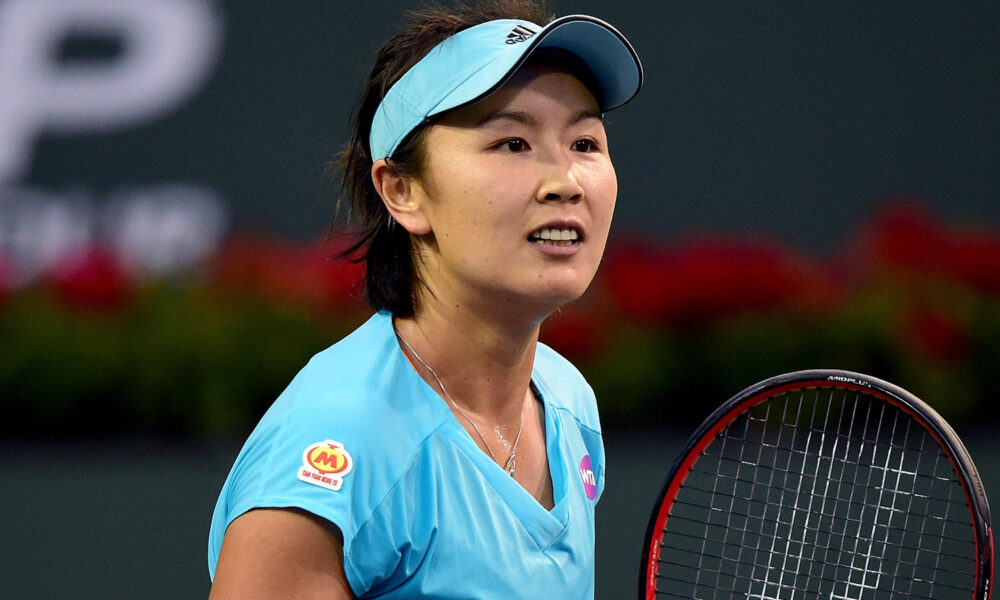Content Warning: This article discusses sexual violence.
On Nov. 2, Chinese tennis player Peng Shuai posted a statement to Weibo, a Chinese social media platform, accusing former vice-premier Zhang Gaoli of sexually assaulting her in his home three years prior. Shortly after, the statement was deleted from the platform and Peng Shuai disappeared from the public eye.
The post was censored and Chinese media did not allow citizens to search certain terms related to the situation, such as Peng Shuai’s name. This disappearance has led to international concern for her safety.
The hashtag #WhereIsPengShuai has been trending on various social media platforms and fellow athletes such as Serena Williams, Naomi Osaka and Novak Djokovic expressed their distress over the situation.
On Nov. 17, an email allegedly written by Peng Shuai to Steve Simon, the chairman and CEO of the Women’s Tennis Association (WTA), attested to her safety and well-being. Simon openly questioned the veracity of the statement, tweeting that “Peng Shuai must be allowed to speak freely, without coercion or intimidation from any source.”
Simon has threatened to cease the WTA’s business in China if the safety of the tennis player is not confirmed.
On Nov. 20, disturbing footage of the tennis player dining in Beijing was released. In the videos, Peng doesn’t speak and clearly looks uncomfortable. Though the videos are a reassuring indicator that Peng is alive, the footage does not guarantee her security or comfort.
That Peng Shuai could have her autonomy stripped just for telling her truth reflects a larger culture of silencing and dismissal that many athletes face when they speak out about sexual assault within the sports world. Over the years, multiple athletes have been reduced to silence regarding the sexual abuse they have endured at the hands of coaches and teammates.
Sexual violence is severely underreported, and sports organizations such as USA Gymnastics have also played a part in encouraging the culture of silence in athletics. It appears that the athletes’ performances and organizations’ reputations are deemed more important than athletes’ mental or physical health.
In 2018, former USA Gymnastics coach Larry Nassar was tried and sentenced to prison for sex crimes. Nassar had sexually abused at least 265 girls and women under the guise of medical treatment and procedures. This abuse was covered up and brushed under the rug by multiple institutions at the expense of the athletes.
Michigan State University received reports of sexual abuse regarding Nassar in the 1990s yet continued to employ the doctor. Only in 2015 did the FBI begin privately investigating him. Between the beginning of the investigation by federal authorities and the public denunciation of his abuse by The Indianapolis Star, Nassar had abused more than 40 women and girls.
The Nassar case is a clear example of the failure of athletic institutions and organizations to treat sexual abuse and assault cases seriously. As recently as 2021, Alen Hadzic, a fencer for Team USA, was allowed to compete in the Olympics despite multiple accusations of sexual misconduct against him. Allowing athletes and coaches with a history of sexual misconduct to attend and participate in sporting events is detrimental to those athletes who have experienced sexual abuse—and also puts others at risk.
Prominent American gymnasts who suffered abuse by Nassar, such as Simone Biles and Aly Raisman, have denounced the system that enabled their abuse and faced backlash for speaking out. However, Peng’s situation is particularly worrying because the entire narrative of her story is controlled by the Chinese government.
The case of Peng Shuai reveals a culture of silence that blankets athletes around the world, protecting perpetrators and stifling survivors. There need to be significant changes made in the way cases of sexual abuse and sexual misconduct are handled by athletic institutions. When reports of abuse are constantly dismissed or pushed aside, athletes are led to believe that speaking out will change nothing, while abusers are never held accountable.








